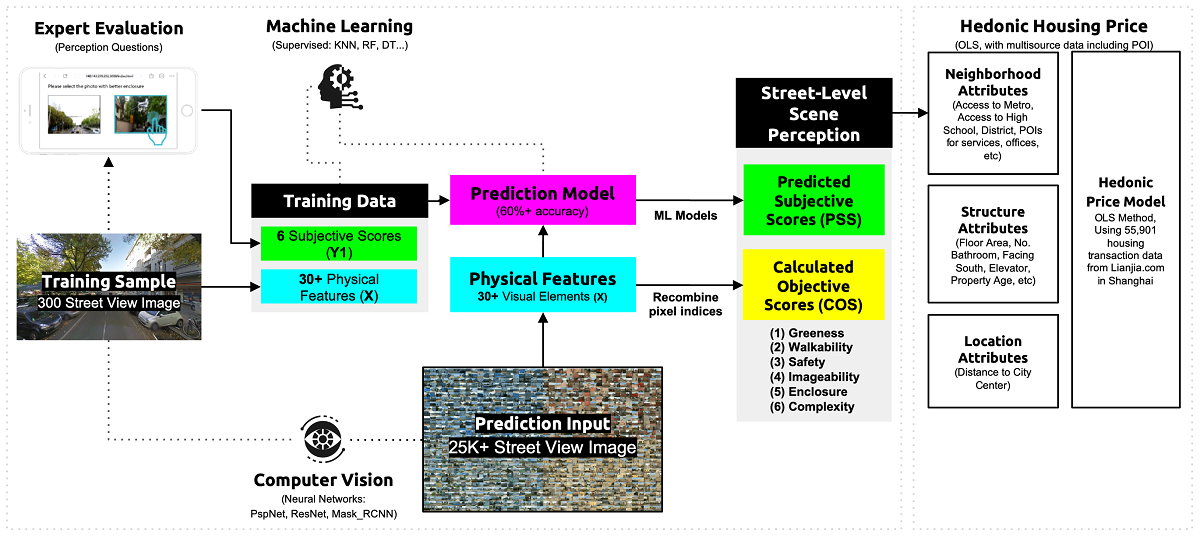The relationship between the street environment and the health, education, mobility, and criminal behaviors of its citizens has long been investigated by economists, sociologists and urban planners. Home buyers were found to pay a premium for better street appearance. Prior studies considering streetscapes mainly focus on objective measures such as the number of nearby trees, the tree canopy area, or the view index of physical features such as greenery, sky or building. However, subjective perceptions may have complex or subtle relationships to physical features, individual physical features or simply summing them up do not capture people’s comprehensive perception. In contrast, this study proposed a new approach for the urban-scale application to quantify both subjectively and objectively measured streetscape scores for six important perception qualities, namely Greenness, Walkability, Safety, Imageability, Enclosure, and Complexity. Built on prior quantitative studies in urban design quality and emerging applications in deep learning and open source street view imagery for urban perceptions, we integrated existing frameworks to (1) effectively collect and evaluate both subjectively and objectively- measured perceptions; (2) investigate the coherence and divergence in ML-predicted subjective scores and formula-derived objective scores; and (3) compare their effects in affecting house prices taking Shanghai as a case study using a large-scale dataset on home transactions. The results implied: first, the percentage increase in sales price attributable to street scores is significant for both subjective and objective measurements. In general subjective scores explained more variance over structural attributes and objective scores in hedonic price model. Particularly, objective Greenness, subjective Safety and Imageability scores positively affected house prices. Second, for Greenness and Imageability scores, the subjective and objective measures exhibited opposite signs in affecting house prices, which implied that there might be mechanisms related to the psychological, social-demographical characteristics of street users that have not been fully incorporated by objective measures that taking view indices or recombination of them. In addition, certain objective measure might outperform subjective counterpart when the connotation of the perception is self-evident and not complicated, for example the Greenness. For those concepts were not familiar to the average person, subjective framework exhibits better performance. This is the first study comprehensively expanding hedonic price method with both subjectively and objectively measured streetscape qualities. It suggested that city authorities could levy a street environment tax to compensate the public budget invested in street environment where developers secured benefits from a price premium. This study enriches our understanding of the economic values of the subjective and objective measures street qualities. It sheds light on promising future study areas where the coherence and divergence of the two measurements should be further stressed.

